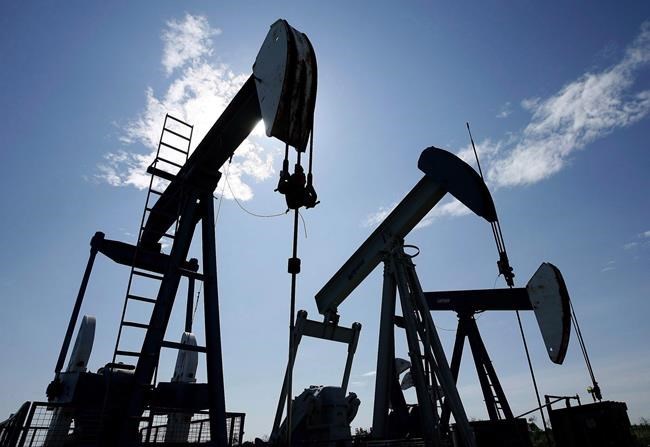HALIFAX — The value of crude oil exports from Canada has increased over 15-fold in the last 30 years, according to a report from Statistics Canada and the Canada Energy Regulator.
The increase means exports of the resource accounted for more than 14 per cent of Canada’s total exports in 2019 with a value of $84.3 billion.
In 1990, crude oil made up only 3.6 per cent of the country's total exported products.
The report says crude oil production has also grown considerably over the last three decades, led first by conventional oil and then by the oilsands in the last 15 years, with Alberta becoming the largest contributor to Canadian production in 2009.
Some of that growth is attributed to high oil prices in the late 2000s and early 2010s, according to the report. From 2010 to 2015, heavy oil exports rose by an average rate of 12.5 per cent annually due to increased production from the oilsands.
"The world thought it was running out of oil so capital was poured into the oilsands which were seen as one of the few last places in the world that was free and open to foreign investment to drive oil and gas production higher to meet anticipated growing demand," said Kevin Birn, a chief analyst for IHS Markit.
Birn said in an interview Monday that the rush to capture profits in the oilsands is what led to the acceleration of Alberta's oil and gas industry.
Recently, the COVID-19 pandemic has had a "substantial impact" on production and exports, causing values to drop to their lowest point since 2002 in April 2020.
But the agencies say further analysis is needed to determine the full extent the pandemic has had on the crude oil sector.
Despite the challenges put forth by the pandemic, Birn said demand for the resource has been able to bound back from the dip early last year.
"It's still is a significant economic force in the country and a major driver of prosperity," Birn said.
In fact, the biggest hurdle for Canada's crude oil sector has been keeping up with production, he said.
"A lot of Canada's challenges over the last half decade or more was its ability, or its inability, to keep up with that pace of growth in terms of bringing online that required infrastructure to be able to make sure that product can get to market," he said.
A notable example of a shift in the sector comes with the cancellation of TC Energy Corporation's Keystone XL Pipeline Project last week.
An IHS Markit report from December found that delays in the expansion of the export pipeline capacity have contributed to lower prices in Western Canada, representing a loss of $17 billion for the crude oil industry over the last five years.
Other challenges come from changing demands, he added.
"When we look forward, we do see a deceleration of growth taking place," he said, as fewer transportation projects come online and investors turn some of their attention to decarbonization.
Birn said he was "cautiously optimistic" however, that current pipeline projects, including Enbridge Energy's Line 3 oil pipeline and the Trans Mountain Pipeline expansion, will allow Western Canada to manage its takeaway capacity with their completion.
This report by The Canadian Press was first published June 14, 2021.
Companies in this story: (NYSE:TRP, TSE:ENB)
———
This story was produced with the financial assistance of the Facebook and Canadian Press News Fellowship.
The Canadian Press



